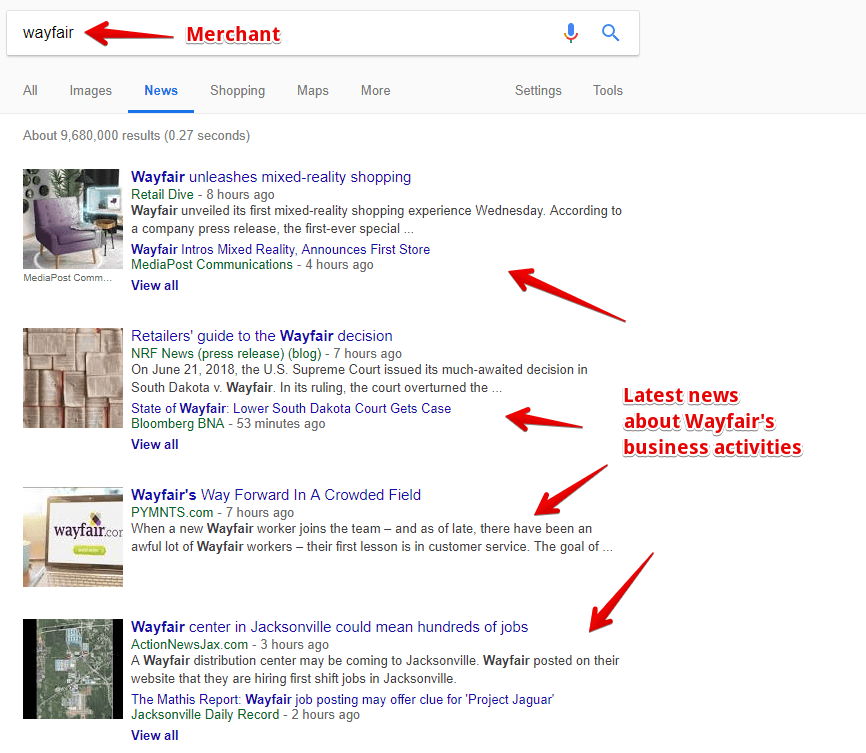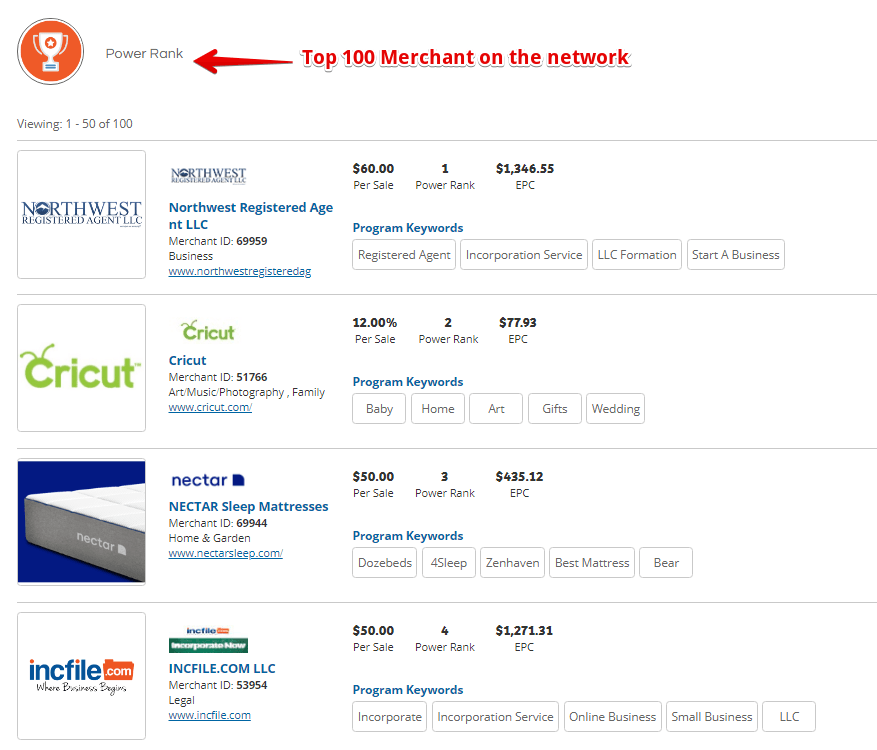 It is often said – go after big commissions and you’ll be paid well as a blogger. Well, that statement is less than partially true. In reality, other factors need to be considered if you want to promote something successfully and it all boils down to how you find an affiliate program in the first place. Here’s a quick checklist to guide you through the process.
It is often said – go after big commissions and you’ll be paid well as a blogger. Well, that statement is less than partially true. In reality, other factors need to be considered if you want to promote something successfully and it all boils down to how you find an affiliate program in the first place. Here’s a quick checklist to guide you through the process.
1 – Niche Analysis
Understanding the purpose of your niche from the very beginning is very important. It helps to visualize the audience’s interest/concerns and prompt you to think about products that can solve their problems. Most of these queries can be discovered through specific search terms on Google autosuggest or niche forums.
The more variable the terms, the more keyword opportunities you can leverage for traffic. This would be a good indicator to promote a certain product, but don’t forget to look into market saturation as well. If it’s highly competitive and you are just starting out, it might be difficult to establish any authority. In that case, affiliating with other type of products would be a better idea.
<image>
Besides that, you also want to be as relevant as possible. I see this all the time with new bloggers – promoting products that are totally beyond the scope of their niche. For example, posting a make-money-online ad on a pet blog. It’s totally irrelevant to the audience and may cause more confusion than conversion.
2 – Merchant Research
With a product in mind, the first step is to approach the brand from the consumer’s perspective. You want to get as much first hand experience as you can in this area so that you can rate the merchant in terms of service and usability.
The first place to check out is the eCommerce site, if it’s an online retailer or the sales page, if it’s a single product promotion. Generally, you want to be looking for user-friendly interface and mobile responsiveness because more people are buying things through their phones.
Study the product details and complete a purchase to see where it leads you in terms of checkout, shipping options and delivery efficiency. If you are satisfied with the process, the referred customers are likely to feel the same way too.
The second thing to look at is reputation because essentially, you want to partner with merchants that offer good values and can continue to attract returning customers. When they are doing good business, so can you. A quick search on Google News will more or less, reveal what’s going on with a particular company and whether it’s a good idea to be affiliated with them.

The third thing that I’ve begun to research lately is to find out traffic statistics for a particular merchant’s site using SimilarWeb. It’s actually a paid platform, but the free report is quite sufficient as it comes with a good overview of the visitor’s number, popular countries and other traffic segmentation. With this information, you should be able to gauge if the merchant is suitable for your targeted audience and which traffic channel to focus for your marketing campaign.
3 – Product Research
There are many ways to rate a product that is offered through an affiliate program. Qualities can be judged based on personal experience or other customer reviews and prices are usually compared between different brands and marketplaces.
Good quality standard is always valued and it is one element that will keep attracting new customers despite higher price tags. On the flip side, if you are promoting something that’s too expensive, in hope for bigger earnings, it might not convert as positively as you hoped because people generally have a reservation when parting with a large sum of money in the online space.
4 – Commissions and Cookies Analysis
Commission rates are usually the first thing that bloggers look for and there’s always the tendency to go after the bigger number. However, you should always do the math alongside with the product prices. For example, a 5% from $50 gives $2.50 in profit, while a 3% from $100 will yield $3 which is slightly more. In this case, it actually makes more sense to promote the latter.
It’s also important to find out if tiered commission (sales generated by the people that you referred to the program – not the product) is applicable, whether there’s bonus for free trials or if there’s potential for recurring sales. In addition, digital products usually offer bigger percentage cut as compared to physical products, so see if this is something that would appeal to your blog readers.

The cookie duration, also known as a “referral period,” in which the merchant compensates affiliates for a referred customer is another factor to consider. When shopping online, many customers don’t frequently buy on the first visit, so the longer the cookie, the better advantage it will serve you.
5 – Merchant Sales Performance
Merchants with established online presences usually have a good sales record and this details could give some ideas as to how much you would gain as their affiliates. Such information may not be readily available if it’s a private program (meaning that, the application is done directly through their main website), but if the programs are managed by affiliate networks, things are more transparent.
Clickbank for example, which is a marketplace that sells digital products, has the Gravity Score to indicate the level of productivity when ranking vendors in the marketplace. The higher the number, the more likely that affiliates are making sales with the product in the duration of 12 weeks.

In the ShareASale network, high performing merchants are grouped in the Top 100 Ranks and this list is updated regularly. Other metrics that indicate whether they are selling well are the EPC (earnings per one hundred clicks), average sale and conversion rate.

On the other hand, merchant performance in the Commission Junction network is indicated by the Network Earnings Score, ranging from 1 to 5. The higher the score, the more likely the product will convert into sales.

When signing up for private programs, remember to ask their representative for this detail. The more informed you are, the better you can decide which affiliate programs to join.
6 – Promotional Tools
While the regular affiliate links should always be the mainstay for conversion, it helps to get additional promotional tools on product reviews. Things like banners, coupons and videos are very eye-catching and there more the merchant provides them, the easier it is for you to strategically convert readers on your blog.
7 – Affiliate Support
For every customer and affiliate programs, there should be someone in the company that can be contacted for assistance, whether it is through email or phone support. Here’s your chance to test the water – ask questions and rate their response. Never assume that every so-called profitable product come with brilliant support. That’s why we do affiliate marketing in the first place – to provide a thorough review for customers about the merchant as a whole.
Other questions to ask are;
- Is their after-sales service good enough to cover you?
- What channel do they use for commission payment and how soon can that be done?
- How deep is the level of tracking and reporting for affiliates?
- Do they provide deep-linking for individual products?
Keep asking these questions until you are satisfied and you’ll be this much closer to finding the right affiliate program.
The Key to Long Term Affiliation
This process of elimination can steer you towards partnering with good merchants, one that will benefit your blog for the long term. You don’t want to be associated with poor performing or worse, scam-oriented businesses that are just simply bad for your online reputation.
So the next time you encounter a high paying commission product or even a new merchant for that matter, walk through these steps and justify their programs based on relevance, facts and trust. Remember – these criteria are closely interconnected and they should be analyzed in combination, not in isolation.
Well, I hope you’ve found value from this piece of information. If you are interested to learn more about running a successful affiliate business, here are some awesome tools and training to help you out.
Question – What other criteria do you have for selecting affiliate programs that is not in the list? Let us know in the comment area below.

This article was right up my alley since finding a niche to try to dominate is exactly where I’m at right now in the process. I hadn’t really thought about all the different ways to analyze a niche, especially the cookies and the real profit percentages. I definitely need to rethink some of my positions. Glad I found this article before I got too far in all of this.
Hey Brandon, glad I could help 🙂
I find the topic very helpful. All the things you listed are the most important points that an affiliate marketer should know when focusing on a niche. You helped me understand more about the cookie analysis, which I didn’t know before. So thank you.
Well, I am glad you benefited from it, Mina.
Finding an affiliate program for me is confusing, especially since I am not from USA. Some programs do not offer payments to my local bank account and flying a check takes a lot of time and may even expire before I get to clear it. Would you advise me for affiliate program that is good for South East Asia region which deal with toys?
Hi Kit, have you considered joining the AliExpress affiliate program? Most sellers are based in China, but they do ship worldwide, including South East Asia. Their eCommerce interface is very solid and there are a ton of products to choose from. Granted most of them are also made in China, so you might want to test out the quality first before promoting to your readers.
Hope this helps.
I think I better choose item sale price that is higher than $50. For six percent commission , there is not much to earn if the item sale price is lesser than $50. I would be depending on sale quantity if I want a good earning. That is a big challenge for me. I did not do my research when I first started so that’s something I should change.
Hi Kit, certainly choose a higher price point whenever you can, but don’t restrict yourself to that when you are just starting. Even the smallest commission is a good motivation and you never know what it will lead to.